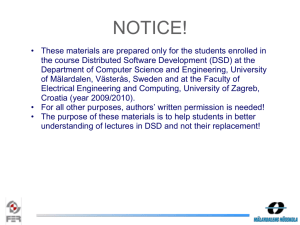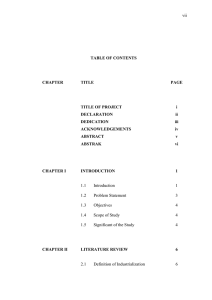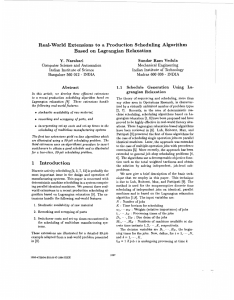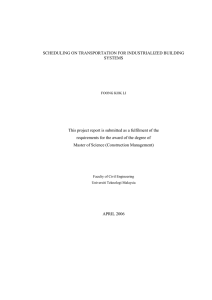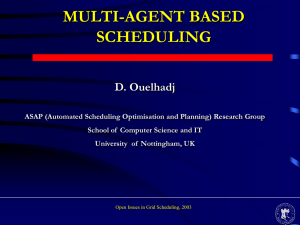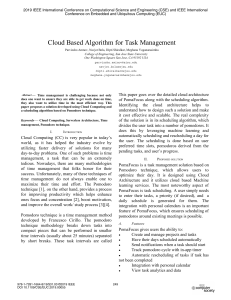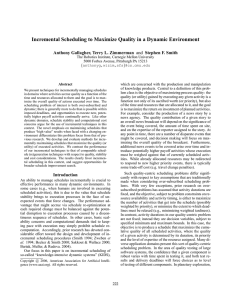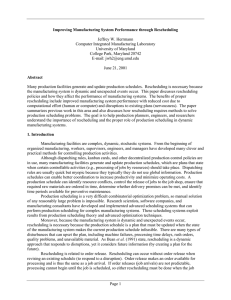Integrating Production Management and Process Control Decisions for Smarter Manufacturing
advertisement
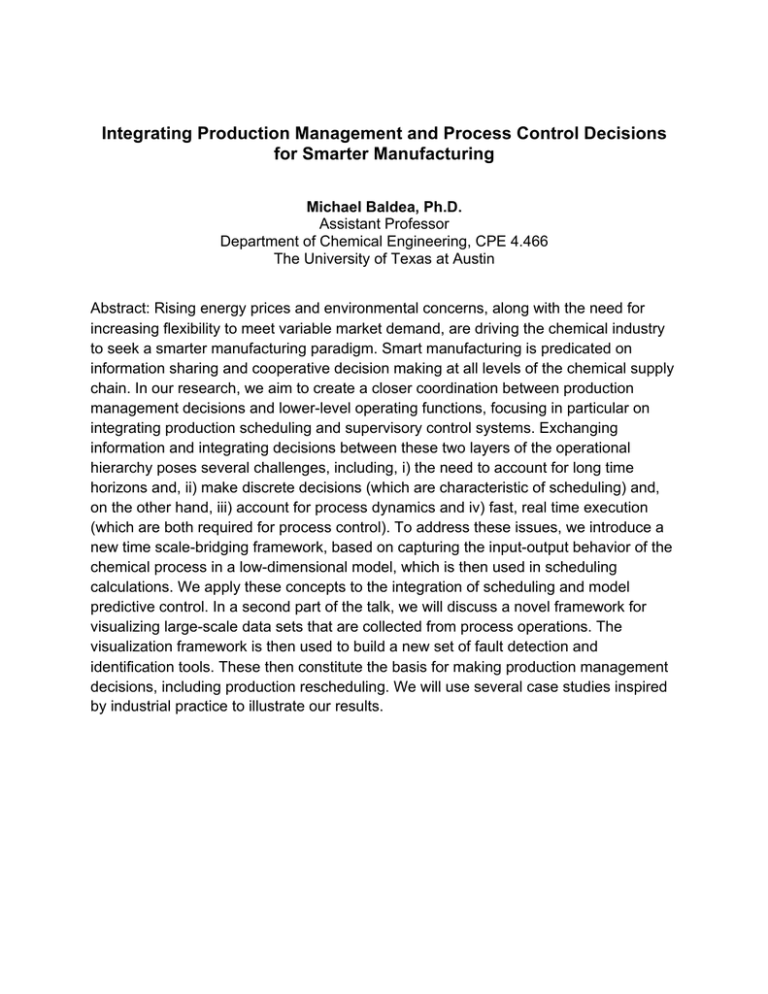
Integrating Production Management and Process Control Decisions for Smarter Manufacturing Michael Baldea, Ph.D. Assistant Professor Department of Chemical Engineering, CPE 4.466 The University of Texas at Austin Abstract: Rising energy prices and environmental concerns, along with the need for increasing flexibility to meet variable market demand, are driving the chemical industry to seek a smarter manufacturing paradigm. Smart manufacturing is predicated on information sharing and cooperative decision making at all levels of the chemical supply chain. In our research, we aim to create a closer coordination between production management decisions and lower-level operating functions, focusing in particular on integrating production scheduling and supervisory control systems. Exchanging information and integrating decisions between these two layers of the operational hierarchy poses several challenges, including, i) the need to account for long time horizons and, ii) make discrete decisions (which are characteristic of scheduling) and, on the other hand, iii) account for process dynamics and iv) fast, real time execution (which are both required for process control). To address these issues, we introduce a new time scale-bridging framework, based on capturing the input-output behavior of the chemical process in a low-dimensional model, which is then used in scheduling calculations. We apply these concepts to the integration of scheduling and model predictive control. In a second part of the talk, we will discuss a novel framework for visualizing large-scale data sets that are collected from process operations. The visualization framework is then used to build a new set of fault detection and identification tools. These then constitute the basis for making production management decisions, including production rescheduling. We will use several case studies inspired by industrial practice to illustrate our results.




